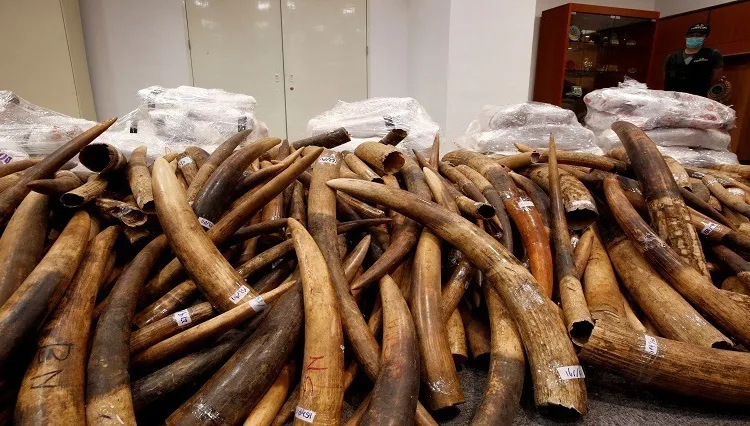In a concerted effort to shield its declining elephant population from rampant wildlife traffickers, Nigeria destroyed 2.5 tonnes of seized elephant tusks valued at over N9.9 billion ($11.2 million) on Tuesday.
Conservationists note a drastic decline in Nigeria’s elephant population, which has plummeted from an estimated 1,500 to fewer than 400 over the past three decades. This decline is attributed to poaching for ivory, habitat loss, and human-elephant conflicts.
Iziaq Salako, the Minister of State for Environment, confirmed the government’s action of crushing the tusks. He announced plans to utilise the resulting powder to construct a symbolic national park monument, emphasising the significance of elephants within the ecosystem.
The pulverisation of the tusks in Abuja mirrors a similar event in October when officials destroyed four tonnes of seized pangolin scales valued at $1.4 million.
Despite the 1989 ban on ivory trade by the Convention on International Trade in Endangered Species of Wild Fauna and Flora (CITES), thousands of elephants are slaughtered annually for their tusks.
Despite being a CITES signatory, Nigeria is identified as a hub for illegal wildlife trafficking to Asia, involving tusks and pangolin scales. To counter this, the country has heightened anti-smuggling efforts, collaborating with various international entities. In August 2021, Nigeria made its largest seizure of illegal wildlife parts, working closely with British, US, and German officials.
Recently, a video on social media displaying a soldier shooting two elephants that strayed into farmlands prompted an investigation. The incident sparked widespread outrage among citizens.
In 2022, Nigerian customs officials confiscated 1,613 tons of pangolin scales and arrested 14 individuals in a bid to combat illegal wildlife trafficking.”




